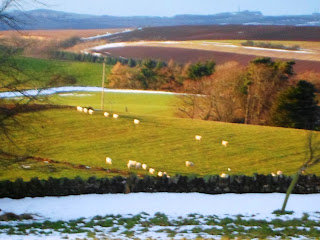Tuesday
of the Thirty-first week in Ordinary Time
Holy
Gospel of Jesus Christ according to Saint Luke 14:15-24.
....
and make people come in that my home may be
filled. (v. 23)
For, I tell you, none of those men who were invited will taste my dinner.'"
For, I tell you, none of those men who were invited will taste my dinner.'"
Commentary of the
Saint
Ambrose (c.340-397), Bishop of Milan and Doctor of the Church. Commentary on Saint Luke's Gospel, 7, 200-203 ; SC 52
"Make
people come in that my home may be filled"
The guests excuse
themselves, whereas the Kingdom is closed to no one who does not exclude
himself by his own decision. Our Lord kindly invites everyone in but it is our
own laziness or distraction that keeps us out. Someone who prefers buying a
farm has no place in the Kingdom! In Noah's day, buyers and sellers were
engulfed by the flood (Lk 17,26-28),... and so it is for anyone who excuses
himself because he has just married, since it is written: “If anyone comes to
me without hating his father and mother and wife... cannot be my disciple” (Lk
14,26)...
And so, following the proud disdain of the wealthy Christ turned to the pagans. He brought in good and wicked that the good might be made greater and the inclinations of the wicked improve... He invited the poor, the sick, the blind, thus demonstrating that physical handicap keeps no one out of the Kingdom..., or rather, that the infirmity of sin is healed by the mercy of the Lord...
Then he sends people out seeking at intersections in the roads, for “Wisdom cries aloud in the streets” (Prv 1,20). He sends them out to the crossroads that sinners might be told to abandon broad ways and meet up on the narrow way that leads to life (Mt 7,13). He sends them out along roads and hedgerows because people who are hastening towards the blessings to come without being held back by present blessings, who are committed to the way of good will, will attain the Kingdom of Heaven just like people who are able to make a distinction between good and evil as fields are divided by a hedge: that is to say, those who set up the rampart of faith against the temptations of sin.
And so, following the proud disdain of the wealthy Christ turned to the pagans. He brought in good and wicked that the good might be made greater and the inclinations of the wicked improve... He invited the poor, the sick, the blind, thus demonstrating that physical handicap keeps no one out of the Kingdom..., or rather, that the infirmity of sin is healed by the mercy of the Lord...
Then he sends people out seeking at intersections in the roads, for “Wisdom cries aloud in the streets” (Prv 1,20). He sends them out to the crossroads that sinners might be told to abandon broad ways and meet up on the narrow way that leads to life (Mt 7,13). He sends them out along roads and hedgerows because people who are hastening towards the blessings to come without being held back by present blessings, who are committed to the way of good will, will attain the Kingdom of Heaven just like people who are able to make a distinction between good and evil as fields are divided by a hedge: that is to say, those who set up the rampart of faith against the temptations of sin.










